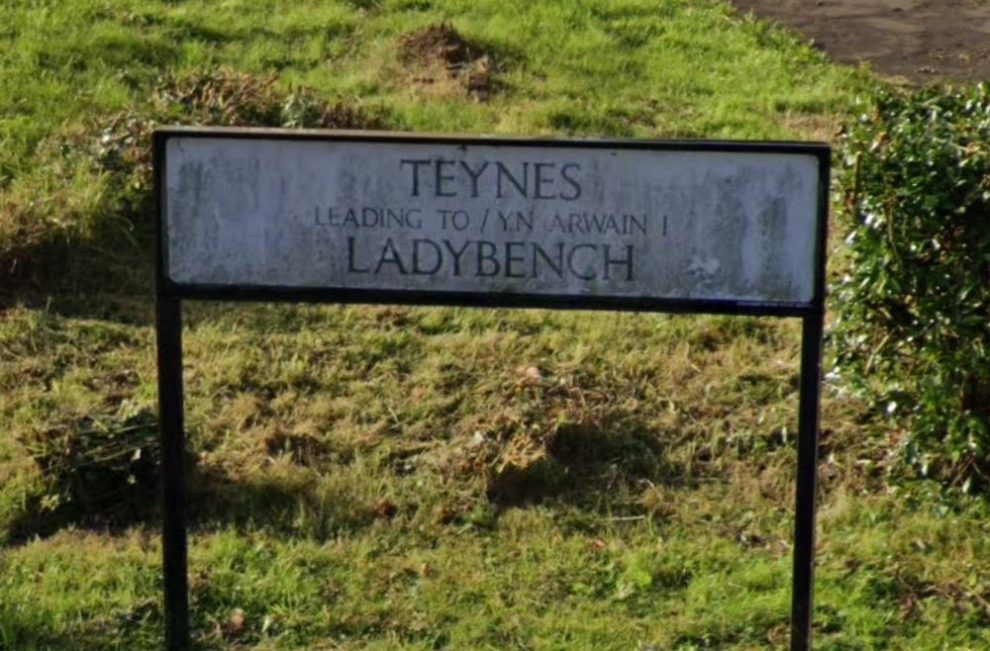TWO street signs that only display names in English have fallen foul of Welsh language rules as additional information isn’t displayed bilingually.
While English only street names are allowed a council has been found to have breached Welsh language legislation firstly by failing to use the Welsh words for “leading to”, which also appeared on the signs, and then placing the corrected wording in the wrong order, with the English first.
A member of the public had complained to the Welsh Language Commissioner and provided photographs of street signs showing “Taynes leading to Ladybench” and another “West Roedin leading to Offway and East Roedin Shop” in Cwmbran.
The commissioner had initially ruled there was no need for an investigation, after receiving the complaint in September 2022, but reconsidered after the complainant said they wanted that refusal referred to the Welsh Language Tribunal.
As a result the commissioner opened an investigation and has now found Torfaen Borough Council breached five of its Welsh language standards, the legally binding rules setting out it uses Welsh.
As well as the failure to provide the Welsh wording on the signs and placing the English first, when it attempted to correct them, the commissioner found the council breached three standards by failing to consider the impact decisions it made could have on the Welsh language.
Torfaen council had defended its policy of only using only the official name on streets signs, in whichever language, and that developments should only have one official name.
As using only official names is acceptable the commissioner found no breach of the standards in relation to only displaying the names in English but said they would like to note “nothing prevents the council from registering Welsh names for these streets, which would then allow it to add Welsh names to the signs”.
However the commissioner said the failure to provide the Welsh for “leading to” was in breach of the standards.
They also said it was “good to see” the council had since rectified the signs by adding the Welsh words, ‘yn arwain i’, to them but said where a sign contains the same information in Welsh and English the Welsh language text should be positioned so that it is likely to be read first.
Up to the beginning of 2018 it had been translating street names but changed its policy to only using official names and it “encourages the use of Welsh names in all new developments and ensure that the Welsh language is not treated less favourably than the English language.”
But the commissioner said the reversal of its translation policy has resulted in the council having to remove the majority of Welsh names from the signs as only the English names had been registered.
The commissioner said the council had failed to provide evidence it had “conscientiously considered” the effect revising the street naming policy could have on the Welsh language.
The council also said by using only Welsh names, where adopted, the policy would encourage use of those names, rather than an English translation. But the commissioner said it had failed to show how the street naming policy could be formulated to have positive or increased positive effects on the Welsh language.
They also said the failure to consider how to protect unofficial Welsh names for streets was a failure of the standards.
The council now has three months to comply with the commissioner’s requirements for further action that includes training and guidance for staff on the standards including use of the words “leading to” as an example of the type of information that must be translated.
It also has to provide evidence that it has, as it said, corrected the sign which had listed the English text before the Welsh.



















